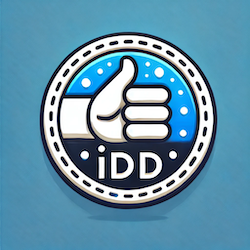When I set my e-commerce business up some 17 years ago (it feels like forever...) I made the decision to use all the software and automation I could afford. The goal was to make the business as efficient and agile as possible.
Now, I'm in the process of reversing that decision. I'm working on dropping software packages that I believe have outlived their usefulness.

Image by Jean Martinelle from Pixabay

Did It Work ?
I'd give this a resounding "Yes !"
Over a period of time I started using a variety of software packages, each doing a specific job and selected to be the best for that job. It enabled me to be ahead of the competition in terms of eBay and Amazon repricing, almost real-time synchronisation of stock across multiple sales channels, and ahost of other things.

So What Changed ?
I sat down and re-assessed my buisness over the last couple of months, mainly trying to work out why it was feeling a lot more stressful than ever before.
I realised that the big thing which has changed is the software and suppliers I'm using. Effectively, I'm spending all mny time working for my suppiers rather than for myself or looking after my customers.
When it comes to software, it's very different now compared to a few years ago. I like my software to be a suite of different packages, each doing a very specific job.
Now, each software company wants to try to do everything, leading to an incredible level of over-complication, as well as conflicts when two or more pieces of software trip over each other trying to take control of the same task.
Software is no longer intuitive to use. It can take weeks to learn a package, when previously it would be simple enough to get to grips within a single day.
I think in a lot of cases, e-commerce software is written by developers who have never worked in e-commerce, so don't understand the needs of their customers and have to keep adding bells and whistles to justify their existence. In the process, it makes the software glitchy and unreliable.
A corollary of this is that the software companies think that because their offering is more "comprehensive" (even if most of it is unused or unusable), they can charge a lot more for it. Then they have to aim their product at enterprise-level businesses because their original small business customers can no longer afford what they are charging.
In the end, I realised I was paying a lot of money for a number of packages that were far too complex for me to understand or get the best out of. Being aimed at enterprise type businesses meant they were designed to be used full-time and to fill that time. I was spending all my time maintaining software instead of looking after my customers !

What Is The Solution ?
The solution I'm putting in place is simple. Get rid of over-priced, over-expensive software, and do my job as a human.
Simplifying processes down to the basics and only doing what is actually needed will free up time to interact as a human with my customers, to do marketing, and maybe even to have a bit of a life. By cutting out unneccessary costs, I'll be able to keep my prices down at a time when people are cost-conscious. Simplifying processes will reduce errors, making for happier customer and less cost fixing the errors.
I guess I'd forgotten that any business is about one human looking after another. It's too easy to get bogged down in software settings and processes. Now it's time to get back to having a "human face" for my customers.
This is, of course, the exact opposite of the advice that is given in business forums and articles (which I suspect is often from software companies or people sponsored by them). I've leanred that creating a successful business means doing the opposite of what everyone else is doing, but doing it really well !
Posted using The BBH Project
